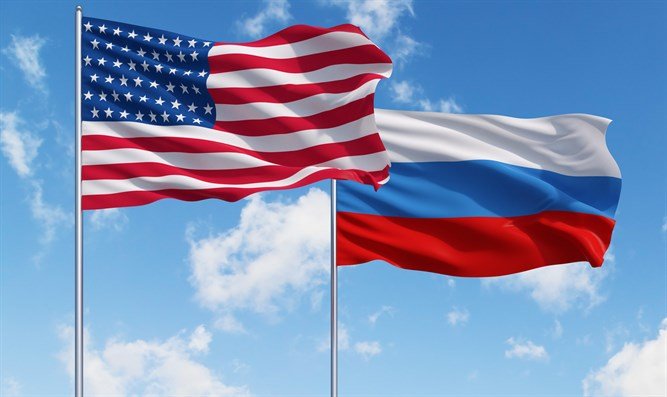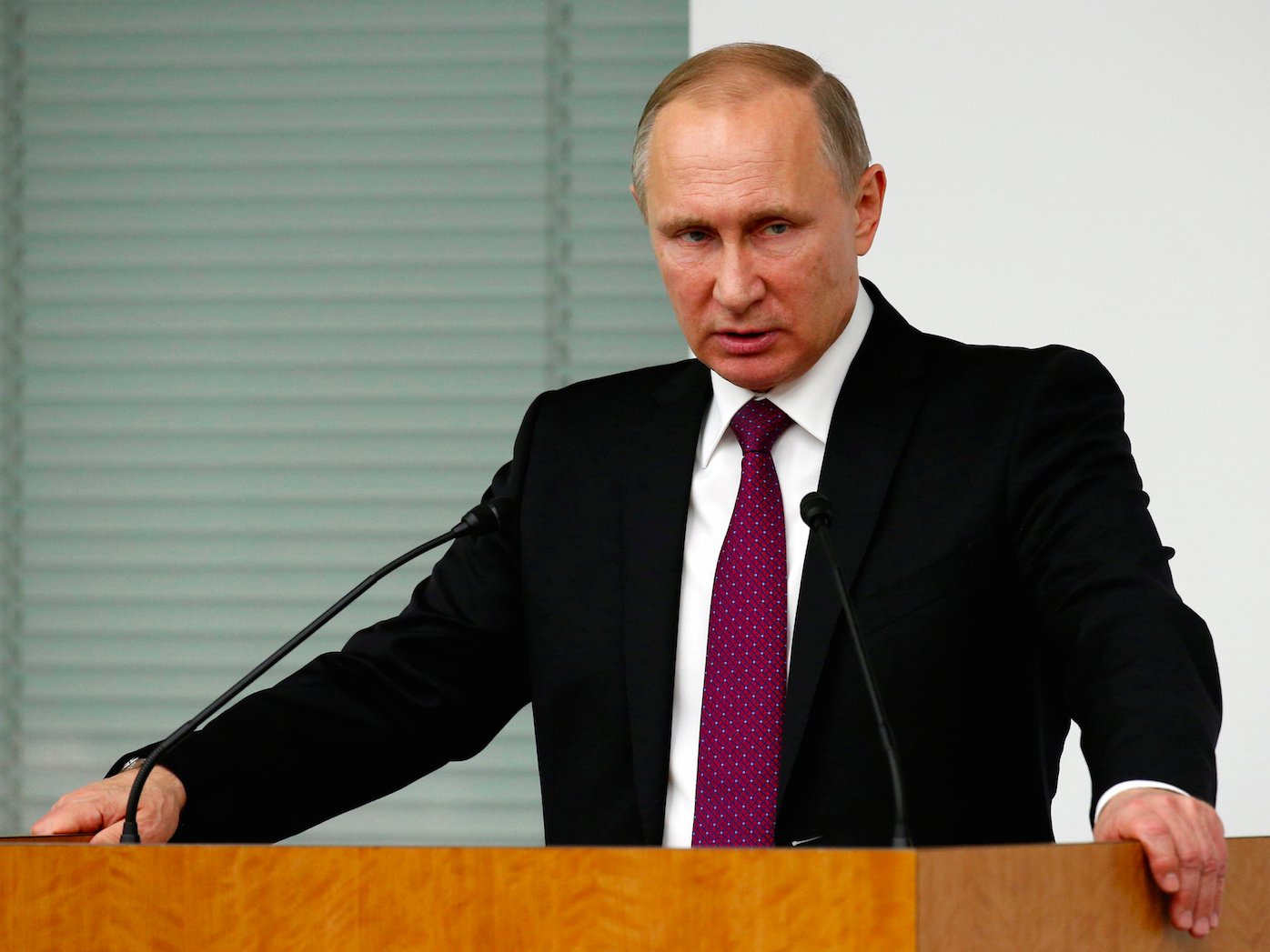Dennis Onakinor goes back in time to explain the origins of President Vladimir Putin’s military swagger, which ineluctably occasioned his ongoing invasion of neighbouring Ukraine. Observing that it all began in March 2018, when Putin announced that Russia had successfully developed hypersonic missiles that were not yet available to any other country in the world, he goes on to show how the Russian leader’s belligerency assumed an implacable dimension in the aftermath of that announcement. He concludes that Putin and his country will inevitably suffer the curse of great power swaggering militarism in Ukraine, like the defunct Soviet Union in Afghanistan; and the US in Vietnam, Iraq, and Afghanistan.
Until February 24, 2022, when he launched Russia’s ongoing brutal and bloody military campaign in Ukraine, President Vladimir Putin had cultivated the admirable public persona of an astute intellectual with a predilection for populist nationalism and social liberalism. That persona gained reinforcements in course of his carefully scripted public appearances, whence he captivated his audience with indisputable indebt knowledge of domestic and international affairs as he seamlessly toggled between basic developmental issues and esoteric phenomena such as nuclear technology and space exploration.
Sometimes, he inadvertently portrayed himself as an angry global statesman, whose bellicosity is the product of persistent hostility from rival Western leaders, especially those of the US, whom he frequently accused of harboring a grand design to diminish and destroy his “Motherland.” Thus, he often went to great lengths in a bid to cast himself and his country as victims of Western-orchestrated geopolitical machinations, with his bamboozled audience empathizing with him even as his causes verged on selfish irredentism and militarism.
As some critics have maintained, Putin’s propensity to draw empathy towards his cause is borne of his deeply ingrained ability to simultaneously simulate and dissimulate his surrounding circumstances, being a trained lawyer and a former agent of the dreaded Soviet secret service – KGB. One of such critics is no other than the US’ President Joe Biden, who had unequivocally labeled him a “Killer.” Apparently, Biden’s “Killer” label was irretrievably attached to the Russian strongman in light of several political assassinations allegedly linked to him: Alexander Litvinenko, Boris Berezovsky, Boris Nemtsov, Denis Voronenkov, Anna Politkovskaya, Sergei Yushenkov, etc. Of course, Alexei Navalny miraculously survived a nerve-agent poisoning, only to quickly end up in jail.
The ongoing war in Ukraine further lends credence to Biden’s “Killer” label as Putin and his Russian forces continue to display utter disregard for the sanctity of human life in their barbaric and savage bloodletting. In what amounts to a punitive scotched-earth military campaign, they have been bombarding Ukrainian villages, towns, and cities into smoldering ruins. Sparing neither residential buildings nor hospitals, schools and churches, they leave a trail of death, destruction and misery in their wake, with women and children comprising a substantial number of the thousands of casualties.
Millions of refugees streaming out of the beleaguered country and their horrifying tales of Russian atrocities (including rape and other acts of sexual violence against women and children), especially in the heavily devastated cities of Borodianka, Bucha, Chernihiv, Kharkiv, Mariupol, etc., have compelled the International Criminal Court (ICC) to open investigations into allegations of human rights abuses, war crimes, and crimes against humanity, on March 2, 2022. The ICC has been joined in this task by the United Nations Human Rights Council (UNHRC) – a body from which Russia was suspended on April 7, 2022 for “gross and systematic violations and abuses of human rights in Ukraine.”
Remorselessly, Putin has vowed to press on with his self-styled “Special Operation” until its objective has been achieved, although that “objective” remains known to him and his cohorts only, even as most people continue to scratch their heads over his choice of destructive war, rather than peaceful diplomacy, as a solution to the long-running Russo-Ukraine crisis. But, had those people taken the pains to subject his utterances and gestures to close scrutiny, especially after his March 2014 brazen annexation of Ukraine’s Crimea region and its Black Sea Port of Sevastopol, their head-scratching would have long ceased. For, beyond being highly-steeped in Russian irredentism, Putin is equally woebegone in swaggering militarism.
Retrospectively, that military swagger began in the aftermath of his subjugation of the secessionist Chechen rebels of Chechnya region in 1999 – 2000. It assumed a heightened dimension as his 2014 annexation of Crimea and Sevastopol went unchallenged by the international community – barring a few ineffective sanctions imposed by the US and its European allies. By 2018, certain military developments within Russia brought it to the level of global brinkmanship.
On March 1, 2018, Putin delivered a presidential address to the Russian Federal Assembly, during which he announced that Russia had successfully developed and tested a new generation of advanced Intercontinental Ballistic Missile (ICMB) called “Sarmat,” noting that the ICBM was capable of delivering a broad range of powerful nuclear warheads, while attacking targets via both the North and South poles. Gleefully, he played a video showing its capabilities, boasting that “No other country has developed anything like this.”
Hardly had his elated audience digested this information than he made another announcement that would send them quaking in paroxysm of awe: Russia’s exclusive possession of hypersonic missiles that travel at more than 5 times the speed of sound or Mach 5. Hear him: “Military experts believe that it (a hypersonic missile) would be extremely powerful, and that its speed makes it invulnerable to current missile and air defence systems, since interceptor missiles are, simply put, not fast enough. In this regard, it is quite understandable why the leading armies of the world seek to possess such an ideal weapon. Friends, Russia already has such a weapon.”
With video demonstrations, he extolled the defensive and offensive capabilities of the “Tsirkon,” “Kinzhal,” and “Avangard” hypersonic missiles, noting specifically that the Avangard can reach speeds of Mach 20. And, in a thinly-veiled warning to the US and its NATO allies, he admonished: “I hope that everything that was said today would make any potential aggressor think twice … Now we have to be aware of this reality and be sure that everything I have said today is not a bluff ‒ and it is not a bluff, believe me.”
Exuding confidence and an aura of invincibility, he concluded his address by reiterating Russia’s nuclear policy as contained in its military doctrine: “Any use of nuclear weapons against Russia or its allies, weapons of short, medium or any range at all, will be considered as a nuclear attack on this country. Retaliation will be immediate, with all the attendant consequences.”
Some people would later say that this March 2018 presidential address, with its admonitions and threats, marked the beginning of Putin’s implacable military swagger, which culminated in his military buildup on Ukraine’s borders from October to November 2021, his subsequent gunboat diplomacy-style demand for “security guarantees” from NATO in December 2021, and his eventual declaration of war upon Ukraine on February 24, 2022.
According to the Spanish-born American scholar, George Santayana, “Those who cannot remember the past are condemned to repeat it.” President Putin has failed woefully to learn from history, and will surely pay the price of ignoring its lessons. The unenviable examples of Hitler’s Nazi Germany, the defunct Soviet Union, and the US have shown the world that great power military swagger and exhibitionism come with a curse: humiliation. And, just as the said global powers could not escape the affliction of that curse, so will Putin and Russia be afflicted by it, inescapably.
While reminding Russians of the 1945 heroic victory of Soviet patriotic forces over the invading Nazi army, during the 2022 annual “May 9th Victory Day Parade,” President Putin reiterated his blatant lie that the invasion of Ukraine is “A forced, timely, and correct decision … A decision by a sovereign, strong, and independent country.” But, had he been a good student of history, he would have known that Hitler’s war machine had seemed invincible as it overran one European country after another, until it met its waterloo in the Soviet Union. Hence, his own military machine, which is presently rampaging across Ukraine, will be humbled by that country’s patriotic forces, eventually.
The bitter experience of the Soviet Union in Afghanistan, between 1979 – 1989; the US’ debacle in Vietnam from 1961 – 1975, its ordeal in Iraq lasting 2003 – 2011, and its misadventure in Afghanistan spanning 2001 – 2021, should have taught President Putin a valuable lesson in great power military swagger. For, a global military power can easily thunder its way into a militarily inferior country by deploying advanced ballistic and hypersonic missiles, jet fighters and bombers, amoured tanks and howitzers, etc. But, pacifying the occupied country is another matter altogether. And, as the above-stated examples have shown, there lies the curse of great power swaggering militarism: humiliation. A 70-year old Vladimir Putin is about to learn this lesson the hard way.
Dennis Onakinor, a global affairs analyst, writes from Lagos – Nigeria. He can be reached via e-mail at dennisonakinor@yahoo.com





